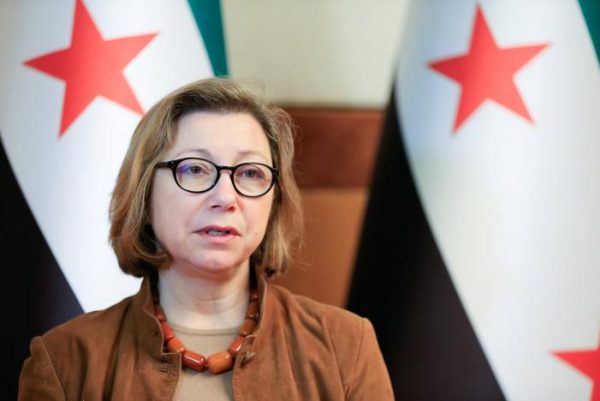
Syria’s opposition is impatient for face-to-face peace talks in Geneva, but things could fall apart if Russia does not pressure President Bashar al-Assad on holding talks and push it to abide by a ceasefire, an opposition member said on Saturday.
The United Nations opened the peace talks with a symbolic ceremony on Thursday, attended by representatives of the warring sides, but there has been no further direct contact, with U.N. mediator Staffan de Mistura still trying to get agreement on how the talks should be arranged.
“It’s off to a very slow start. We would like to make things happen fairly quickly,” Basma Kodmani, a negotiator from the opposition High Negotiations Committee (HNC), said in an interview.
“We have options, concrete operational options and we believe that direct negotiations are what should happen.”
De Mistura met both sides on Friday and gave them a paper with different options that need to be agreed in the next two or three days, Kodmani said.
The launch of direct talks has been held up, at least in part, by several dissident groups, also invited to the talks, demanding to be part of the opposition negotiating team.
Kodmani said they had each been offered a place on the team, and claims that the HNC, which is backed by Turkey, Western nations and Gulf Arab states, was not sufficiently representative were an attempt to undermine the talks.
“You cannot continue discussing individuals who should be in or out,” she said. “This platform is ready to negotiate in the name of all the opposition groups and it is ready to negotiate a solution for all Syrians.”
Whether the talks are direct or indirect, or are split into different tracks, Kodmani said the HNC had done a huge amount of work on all aspects of Syria’s political transition, which is what it wants to discuss.
But the Syrian government negotiator Bashar al-Ja’afari may try to avoid specific talk of “political transition”, which the opposition understand to mean the end of Assad’s absolute power.
“We need to hear from Mr Ja’afari that he is serious about negotiations about political transition, about an agenda that will take us into the real issues, about how we resolve the problems and the conflict and how we respond to the concerns and fears of all Syrians,” Kodmani said.
“When Mr de Mistura says we are here for transition, I don’t see how the regime can still turn away from that and say it is here with a serious intention of engaging.”
She said the best hope for the talks was the interest of Assad’s ally, Russia, in pushing for a deal. Russia has already put its weight behind a ceasefire deal, backed jointly with Turkey and Iran.
The ceasefire is shaky, but it and the political talks are mutually reinforcing, Kodmani said, and Russia needs to support both.
“Why did Russia deploy so much energy into getting the groups to agree on a ceasefire and not seek to make it sustainable by doing the necessary pressure as well in Geneva for the politics to happen?”
REUTERS

Leave a Reply
You must be logged in to post a comment.